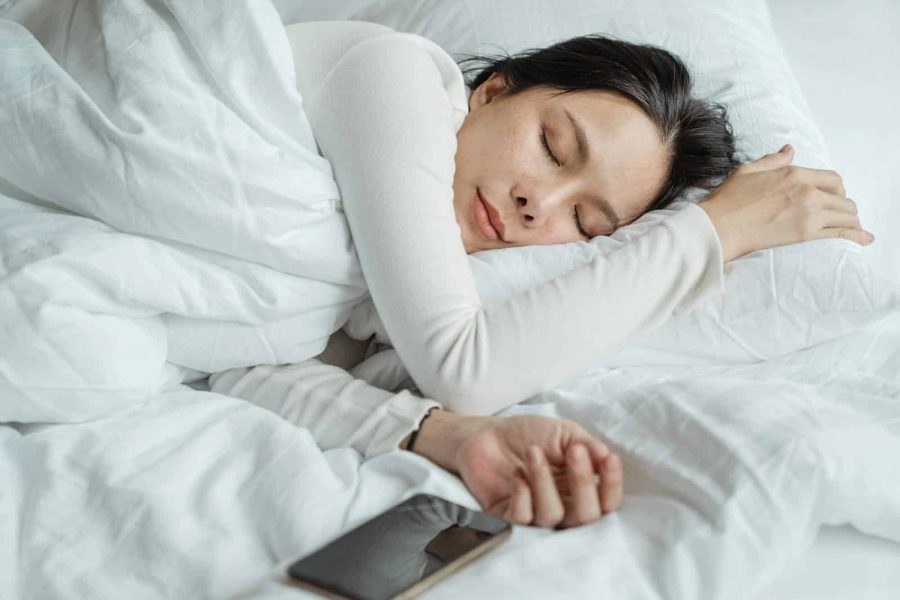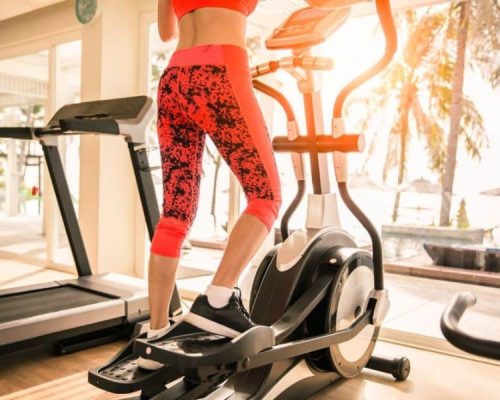Importance of Quality Sleep
Getting good sleep is like giving your body a refresher course every night. We’re not just talking about feeling rested, either—it ties into everything from your physical health to your mental and emotional well-being. Let’s dig into how catching enough Z’s can put a smile on your face and help you tackle the day.
Impact of Sleep on Mood
Ever noticed how you get mad at little things after a bad night’s sleep? Yep, sleep plays a huge part in keeping your mood on an even keel. Lack of quality shut-eye can crank up the grumpiness and stress and might even lead to emotional challenges like depression and anxiety. People who toss and turn are more likely to face these issues, according to Harvard Medical School.
On the flip side, a good night’s rest lets your brain sort through emotions, helping you keep things in check. Skip it, and you might end up feeling more like a rollercoaster than a zen master. Want to dive deeper? Check out our page on sleep and mental health.
Sleep Duration Recommendations
How much sleep you should be getting depends on your age, just like how much pie you should have before it becomes a problem! Getting the right kind of rest can boost both your moods and your body. Here’s a cheat sheet on how many hours you should aim for:
| Age Group | Recommended Sleep Duration |
|---|---|
| Newborns (0-3 months) | 14-17 hours |
| Infants (4-11 months) | 12-15 hours |
| Toddlers (1-2 years) | 11-14 hours |
| Preschool (3-5 years) | 10-13 hours |
| School-age (6-13 years) | 9-11 hours |
| Teens (14-17 years) | 8-10 hours |
| Adults (18-64 years) | 7-9 hours |
| Older Adults (65+) | 7-8 hours |
Source: Mayo Clinic
Want to sleep like a baby and not like a zombie heading towards coffee? Try slotting in some sleep hygiene tips in your routine. Keep caffeine, nicotine, and those late-night drinks at bay because they’re real party poopers when it comes to hitting the hay.
For more clues on how to snooze better and unwind before bed, peek at how to get better sleep and ways to relax before bed.
Factors Affecting Sleep
Getting a decent night’s sleep can sometimes feel like a wild goose chase. But guess what? You might be sabotaging those dreamy Z’s without even knowing it. Let’s break down how some sneaky culprits—nicotine, caffeine, and alcohol—might be messing with your snooze time, and the magic of a good sweat session.
Influence of Nicotine, Caffeine, and Alcohol
Nicotine, caffeine, and happy hour drinks might seem like your best buds, but when it comes to sleep, they’re the villains of the story. These sleep robbers don’t just vanish at sundown; they stick around, acting like giant No Entry signs to restful slumber.
-
Nicotine: Whether puffed in a cigarette or inhaled from an e-cigarette, nicotine jazzes up your heart rate and brain, making it a real party pooper when you want to hit the hay. Consider ditching the smokes, especially as bedtime buddies.
-
Caffeine: We know it helps you power through Monday mornings, but caffeine from java, tea, cola, or even some medicines is like Sleep’s arch-nemesis. It blocks off that sleepy chemical, adenosine, keeping you wide-eyed. Think about cutting back on the afternoon java hits for more restful nights.
-
Alcohol: Sure, a nightcap might help you doze off at record speed, but spoiler alert, it messes with your REM stage, putting a hitch in your memory’s giddy-up. Easing off the booze as bedtime looms can make your sleep much smoother. More tips on handling these disruptors are just a click away in our sleep hygiene tips.
Benefits of Physical Activity
Exercise isn’t just for biceps and toned calves; it’s your sleep’s secret weapon! A bit of daily movement turns you into the champion of deep, undisturbed slumbers, letting you wake up ready to tackle another day. However, don’t go all-out before hitting the sack—end those intense workouts a few hours prior to beddy-bye time. Here’s why a daily workout is a sleep miracle-worker:
| Benefit | Description |
|---|---|
| Snooze Sooner | Helps you fall asleep faster. |
| Quality Shut-eye | Leads to that rich, replenishing sleep. |
| Banish Sleep Apnea | Regular exercise can ease those pesky apnea symptoms. |
| Bye-bye Stress | Exercise is a stress-busting master, easing the worries away. |
Sprinkling a dash of exercise into your day can be a game-changer for sleep. If you’re curious about more sleep-enhancing tips, our articles on exercises for better sleep and ways to relax before bed have got your back.
Making small tweaks in your lifestyle can turn those restless nights into restful ones. For a deeper dive into better sleep strategies, explore how to get better sleep and uncover the delightful benefits of good sleep. Get ready to own the night and, more importantly, your dreams.
Health Risks of Poor Sleep
Connection to Emotional Disorders
Not getting enough shut-eye can seriously mess with your mood. Lack of sleep is a prime suspect in triggering issues like depression and anxiety. It’s like having your own cloud following you around every day. Folks who struggle to snooze often find themselves snapping at their friends and family, or feeling like they’re on a rollercoaster of emotions. Trouble sleeping isn’t just a nuisance—it can be one of the first signs of depression sneaking up on you. Studies even suggest that 15 to 20 percent of those tossing and turning with insomnia might end up facing major depression (Harvard Medical School).
But don’t sweat it. Focusing on catching those Zs can do wonders for your mood. Check out our tips on boosting your sleep quality and explore our insights into sleep and mental health to see how it all ties together.
Link to Chronic Diseases
It’s not just your emotions that take a hit with poor sleep—your body’s entire system might feel it. Skimping on sleep can sneak up on your heart, weight, and even brain function (Mayo Clinic).
Here’s a snapshot of health woes linked to lousy sleep:
| Chronic Condition | How Poor Sleep Takes Its Toll |
|---|---|
| Heart Disease | Blood pressure climbs, stress hormones surge |
| Obesity | Hunger hormones go wild, you’re suddenly hungrier |
| Dementia | Brain fog, clogged-up brain pathways |
| Depression | Pessimistic thoughts, boredom with life |
| Diabetes | Insulin holds back, blood sugar rises |
These dangers make it clear that sleep is a big deal. Poor sleep messes with your heart and metabolism, raising your chances of getting chronic issues. Making simple changes in your daily routine, like saying no to that late-night coffee or skipping the buffet dessert, can make a real difference (Mayo Clinic). To explore more sleep-friendly tips, check out our guide on how to get better sleep.
Keeping stress at bay is also a game-changer for a good night’s rest. Activities like meditation for better sleep or sorting your to-do list can ease stress, paving the way for better sleep (Mayo Clinic). For more tricks on winding down, take a peek at our section on better sleep habits.
Strategies for Better Sleep
Looking to catch some quality Z’s? Well, you’ve come to the right place to untangle the secrets of a blissful night’s sleep. Let’s dive into how managing stress and controlling weight can transform how you snooze.
Stress Management Techniques
Handling stress is like being a superhero for your sleep—and the secret is in the cape! Not really, but managing stress does wonders for your slumber. Here’s how you can arm yourself:
- Get Organized: Tidy up that to-do list and tackle life’s chaos. When your tasks are lined up, your mind can relax—sort of like decluttering your mental garage. (Mayo Clinic)
- Set Priorities: What’s screaming for your attention, and what can wait or be passed along? Knowing what’s crucial lets you breathe easier and face the day with less stress.
- Practice Relaxation Techniques: Give deep breathing, muscle unwinding, and mindful meditation a whirl. They’re like a spa day for your mind, cutting stress down to size.
- Stick To A Bedtime Routine: Hit the hay at the same time every night with a calming ritual. Read, bathe, chill. Your body will catch the cue and slip into relaxation mode.
- Avoid Stimulants: Ease off nicotine, caffeine, and that sneaky glass of wine before bed—those troublemakers can wreck peaceful sleep (Mayo Clinic).
Want more tips to unwind? Check out our guide on chilling before snoozing here.
Impact of Weight on Sleep
Turns out, keeping that scale in check can do wonders for your shut-eye. It’s like a sleep-boosting double whammy with a healthier you. Let’s break it down:
- Sleep Length and Weight: Consistently snoozing less than 6 hours could mean a higher BMI and make weight gain a sneaky foe. The sweet spot? Aim for 7-9 hours for better sleep and weight control (NCBI).
| Sleep Hours | Health Impacts |
|---|---|
| ≤ 6 hours | Higher BMI leading to weight troubles |
| 7-9 hours | Healthier weight and metabolism perks |
- Eating and Sleeping Harmony: Eating like a sporadic squirrel should be kept at bay. Regular meal and sleep times? They’re your allies for healthy living.
- Active Days: Move that body! Exercise adjusts your sleep clock and keeps the weight gremlins at bay. It’s like a one-two punch for less insomnia and better sleep.
Want more ideas? Peek at our tips on jumpstarting your sleep.
By mastering stress and keeping a handle on weight, you’re paving the way for top-notch rest. Ready for benefits beyond measure? Keep up with our stellar sleep advice for the cherry on top of a healthy lifestyle.
Cognitive Function and Sleep
Peeking into the wonder that is sleep reveals its huge impact on how sharp your mind stays. Knowing how snoozing affects memory and the chaos caused by lack of it is a game-changer for your mental well-being.
Role in Memory Consolidation
Regarding sorting and storing your memories, sleep is the unsung hero. While you’re in dreamland, your brain works overtime. During the slow-wave sleep (SWS) phase, those random facts and faces you picked up start sticking. And when rapid eye movement (REM) kicks in, your skills and muscle memory get sorted just right (CWRU).
It’s during SWS that your brain gets buzzing with hormone tweaks and replays your memories to make sense of them. Then REM swoops in, locking them down. It’s good to know that how your brain does this can vary as you grow up—those in the 18-25 club might find their SWS particularly helpful when it comes to forming long-lasting memories (CWRU).
| Memory Type | Sleep Stage | Importance |
|---|---|---|
| Declarative Memory | SWS | Putting facts in order |
| Procedural Memory | REM | Cementing skills |
If you’re after more ways to hit the hay better and boost that brain, check out our tips on ways to chill before sleep and making those zzz’s count.
Effects of Sleep Deprivation
Skimping on shut-eye causes all sorts of brain hiccups. Not catching enough zzz’s can mess with memory, leaving you forgetful, unfocused, and fuzzy on details you knew like the back of your hand just yesterday. Even one lousy night throws your gray matter out of whack (CWRU).
But it ain’t just about feeling tired—missing sleep messes with your emotions and can even make a dent in long-term brain health. Keep risks low by weaving in some stress-busting tips and bedtime-friendly workouts.
| Cognitive Function | Impact of Sleep Deprivation |
|---|---|
| Memory Processing | Harder to learn and remember |
| Concentration | Tough to focus and decide |
| Emotional Control | Moody and off-kilter |
| Long-term Brain Health | Higher chance of going downhill |
Catching up on sleep is like insurance for your noggin. For more nifty advice on how to juggle today’s busy lifestyle and get some decent sleep, dive into our articles on tech versus sleep hygiene and how not sleeping hits your headspace.
Grasping the sleep-cognition connection gives you the tools you need to choose sleep wisely. Use this knowledge to put sleep at the top of your list and scoop the many perks of a good night’s rest.
Sleep Habits and Technology
Apps for Sleep Improvement
In a world buzzing with gadgets, it’s easy to find apps specially crafted to make your zzz’s dreamier. They’ve got everything from tracking your snooze sessions to whispering sweet meditations and creating calming soundscapes. Let’s snoop around some fan-favorites:
| App Name | Goodies | Price Tag |
|---|---|---|
| Calm | Stories that lull you to sleep, guided zen sessions, soothing sounds | Comes free, with some VIP extras |
| Sleep Cycle | Tracks your dreams, smart wake-up calls, sleep sleuthing | Free, with a premium candy aisle |
| Headspace | Sleepy-time meditation, nighttime lullabies, chill-out routines | No cost option, plus a premium stash |
| Pillow | Spying on your sleep, auto-detects bedtime, buddies with Apple Health | Free ride, with VIP perks |
With these apps, you get to peek into your “dream journal” and figure out what ticks for a better night’s sleep. For the lowdown on snagging better shut-eye, check out our piece on how to get better sleep.
Balancing Technology and Sleep Hygiene
Tech is like chocolate—it’s fab, but you gotta keep it in check alongside solid sleep habits. Gluing yourself to screens before bedtime can mess with your internal clock, making it tough to hit the hay. Here’s how to keep your tech and sleep game balanced:
- Cut Back on Screen Glare Pre-Bedtime: Give your eyes a break from screens an hour before you hit the sack. Maybe slap on a blue light filter to keep your body clock on point.
- Stick to a Sleep Routine: Hitting the hay and rising with the roosters at the same time every day can sync you up with nature and boost your snooze quality.
- Chill Out Before Bed: Ease into cozy mode with chill activities like reading a book, a warm soak, or some meditation for better sleep.
- Pick Smart Tech: Choose gadgets that help relax your brain, not perk it up with excitement.
- Tune Your Sleep Space: Make your bedroom a sleep haven—cool it down, quiet it up, and dim those lights for optimal rest.
Balancing the tech goodies with old-school sleep habits can seriously up your snooze game. These tips can send your overall health and spirits soaring, treating yourself to the full benefits of good sleep. Looking to chill before snooze time? Our detailed guide on ways to relax before bed has your back.










